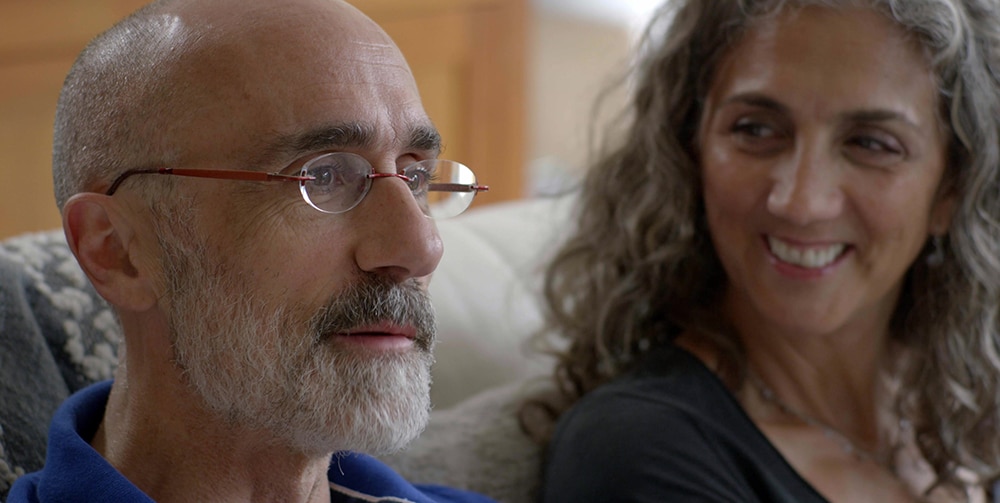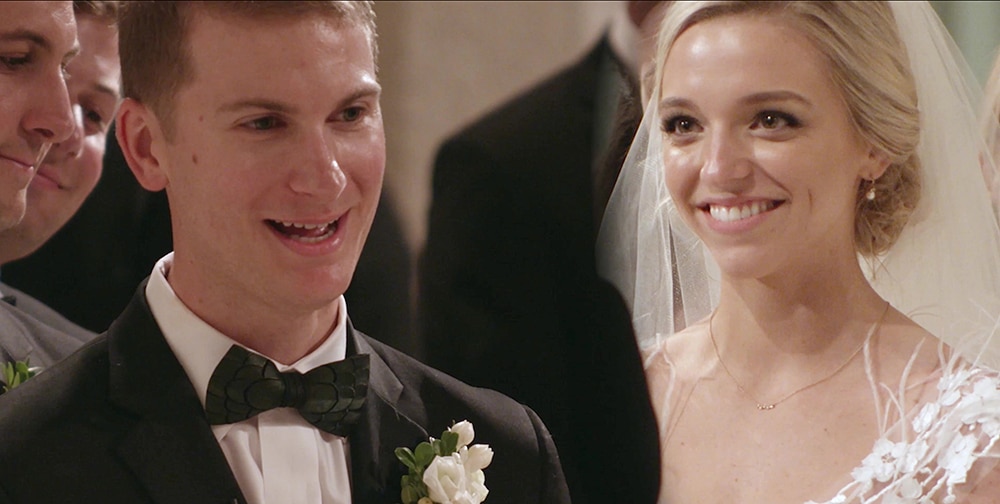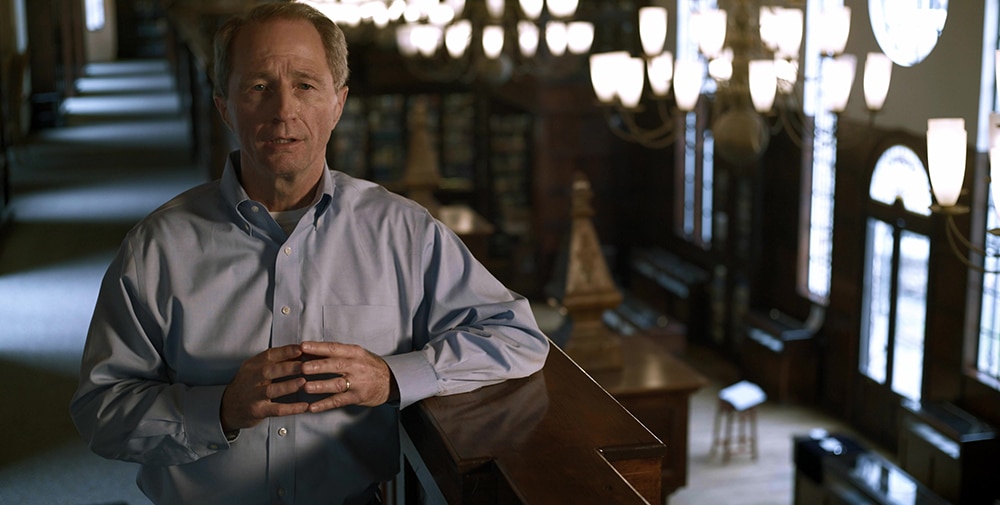After exploring love worldwide for a new documentary, Steve Bollman shared a finding that surprised him: How universal the desire for lasting love is.
“We have some very interesting stories filmed in some interesting locations,” the writer, director and producer of “What Is Love?” told Our Sunday Visitor. “We frequently used a secular crew. Nonetheless, I was amazed to see how engaged they were as we were filming.”
Moviegoers can watch the finished film, “What Is Love?,” in theaters for one night only, on Monday, Oct. 16. The documentary, which draws inspiration from Pope St. John Paul II, invites viewers to accompany Bollman as he joins together scientific discovery, real-life stories and faith to investigate love.
Those real-life stories include the lives of John Pridmore, a former London mafia enforcer; Immaculée Ilibagiza, a Rwandan genocide survivor; Esther and Arthur C. Brooks, author, Harvard University professor and social scientist; Therese and Lance Bertrand, a couple battling cancer and multiple sclerosis; St. Gianna Beretta Molla, a wife, mother and doctor; and Molly and William Duncan, a young, engaged couple in Houston.
The film comes from Lux Amoris Productions, a multimedia production company within Paradisus Dei, a nonprofit founded by Bollman in 2001 to help families discover the superabundance of God within marriage and family life.
“The goal of the movie and series is to explore the ‘beauty, depth and complexity of love,'” Bollman said.
The documentary not only looks at romantic love — including love at first sight between a couple that doesn’t even speak the same language — but also shows the beauty of sacrificial love between spouses and between parents and children.
“Indeed, it is this sacrificial love that more perfectly reflects the love of Christ who said, ‘Love one another as I also have loved you,'” Bollman commented, citing John 15:12. “It is significant that he said this at the Last Supper, just before he entered into his passion.”
“To live a truly fulfilling life,” he concluded, “we should experience many of these ‘types’ of love.”

What is love?
Bollman revealed two events that inspired him to create the documentary: a conversation and a novena.
“First, a friend mentioned to me that one of the most frequently googled questions is, ‘What is love?'” he said. “I answered, ‘The Church has an answer. It’s been contemplating this mystery for 2,000 years.'”
Following this conversation, which he called a seed planted by God, Bollman began a novena to the Holy Spirit, who is Love, according to St. Thomas Aquinas.
“I sensed that God was calling the ministry to something new, so I asked the entire office to make a novena to the Holy Spirit for Pentecost,” he said. “The answer during the novena was, ‘Answer the question, ‘What is love?'”
“I even understood that hidden within the Catholic Nuptial Mass were seven answers to the question, What is love?,” he added. “As such, the rites of the Catholic Mass became the organizing principle to answer the question.”
The influence of a pope
Bollman said that faith plays a role in the documentary — and in answering the question of “What is love?”
“We were inspired by the vision of Pope St. John Paul II,” he said of the late pontiff. “He said he wanted to engage the culture in a ‘serious dialogue’ that included faith and science.”
In agreement, the filmmakers took a “serious” look at the mystery of love.
“We weren’t content to provide a superficial answer to one of life’s greatest mysteries,” Bollman said. “To take that ‘serious’ look, we used everything possible: unforgettable stories, the latest science and the Church’s vision that spans the ages.”
He cited Pope St. John Paul II as saying that young people want real answers and to be challenged.
“We tried to provide a ‘serious’ answer,” Bollman responded, “while challenging the youth to embrace the ‘beauty, depth and complexity of love.'”

A film for youth
From the outset, Bollman said, the film was intended for young adults and youth.
“They face such an incredibly difficult culture relating to love,” he said. “Sociologists forecast that one-third of the people currently in their 20s will never marry.”
“That’s a problem from a societal level,” he added. “We’ve never had a culture survive that doesn’t have the family at its foundation.”
He also identified it as a problem on the personal level.
“My faith and family are the two things that bring the greatest joy into my life,” he said. “Indeed, without faith and family, I would cease to be the person that I am today. Yet, an entire generation is faced with that prospect.”

A focus on hope
If viewers remember one thing after watching the film, Bollman wants it to be hope.
“The movie and series certainly acknowledge the challenges young people fac[e] in finding authentic love, but God is the ultimate matchmaker,” he said. “It has been true from the Garden of Eden.”
“If we allow God to be part of the journey, it will work out … even if it is a much longer and harder journey than anticipated,” he added. “The movie and series end on this vision of hope that God is an active protagonist in humans’ search for love, even on the natural level.”
At another point, he stressed, “We need to be people of hope.”
“Yes, it is a very challenging culture, but Good Friday was challenging as well,” he said, before citing Song of Solomon 8:6. “Nonetheless, Love was victorious because ‘love is stronger than death.'”
He called the virtues of faith, hope and love interlocked.
“If we are men and women of faith, then we must have hope that love is possible even in the most trying circumstances,” he said. “Our culture needs this witness more now than ever.”
People can find out more about the film online, at WhatIsLove.com, and purchase tickets at their local theater through Fathom Events.





